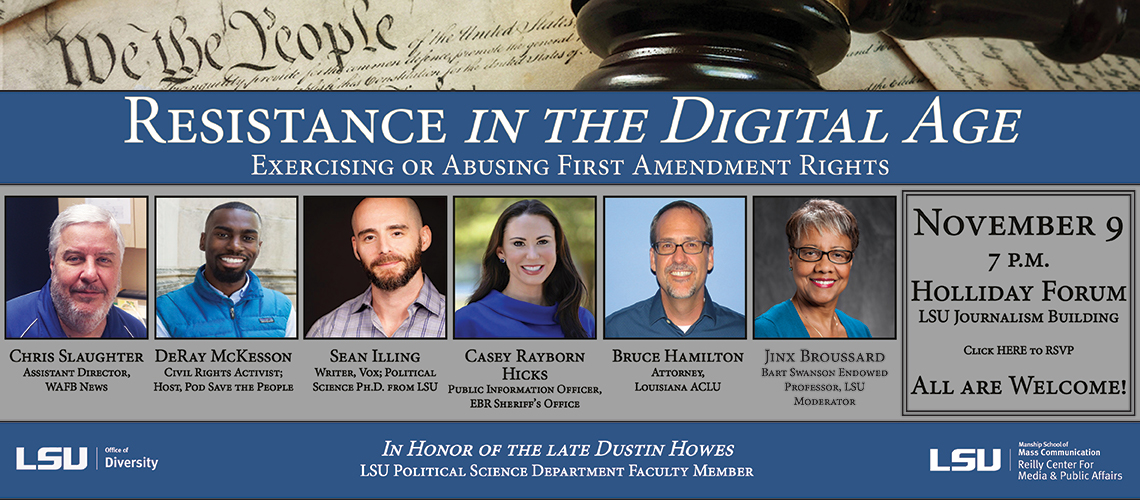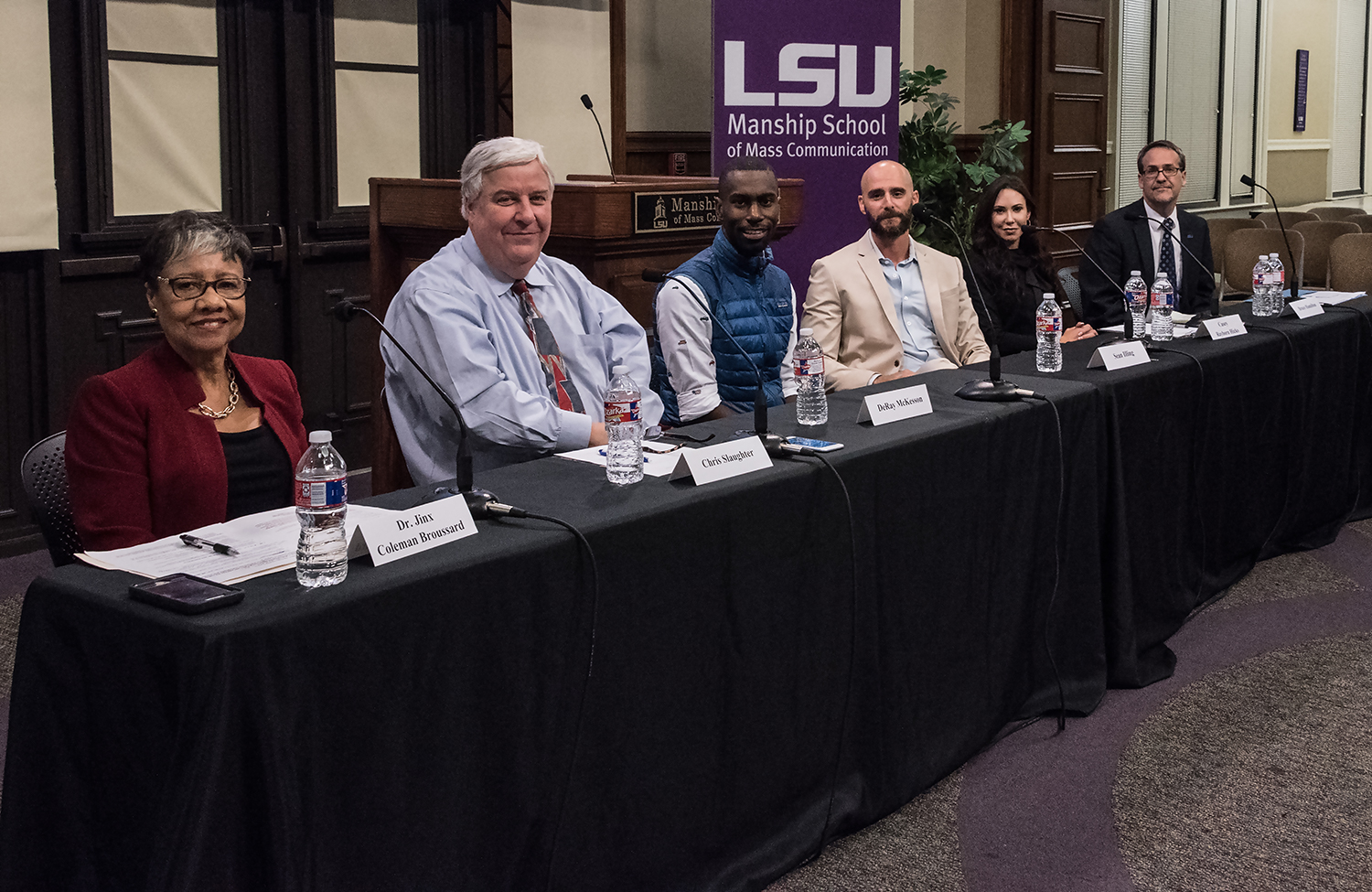Resistance in the Digital Age
Changes in technology and communication practices have raised questions about when efforts to convey political protest are protected, peaceful, and safe. Changes in the meaning and exercise of first amendment rights reflect these technological changes in the digital sphere. This panel focused on the implications of protest's movement to the online world.
This panel of activists, journalists, and scholars discussed the opportunities and challenges faced by reporters, law enforcement officials, and protesters because of changes in technology and the introduction of new communication platforms. Panelists addressed questions about the impact of these changes on First Amendment rights. These panelists included Casey Rayborn Hicks, public information director at the East Baton Rouge Sheriff’s Office; Bruce Hamilton, staff attorney for the American Civil Liberties Union of Louisiana; Dr. Sean Illing, Vox journalist and LSU Ph.D. graduate and expert on peaceful resistance theory; DeRay Mckesson, activist and host of the weekly podcast, Pod Save the People; Chris Slaughter, assistant news director at WAFB TV who was arrested in Baton Rouge's 2016 protests. Dr. Jinx Coleman Broussard, full professor and Bart R. Swandson Endowed Memorial Professor at the Manship School of Mass Communication, moderated the panel.
This event was held in memory of Dr. Dustin Howes, a member of the LSU faculty who passed away in January 2017 due to Amyotrophic Lateral Sclerosis, also known as ALS. Dr. Howes contributed greatly to the discourse on the politics of nonviolence.









